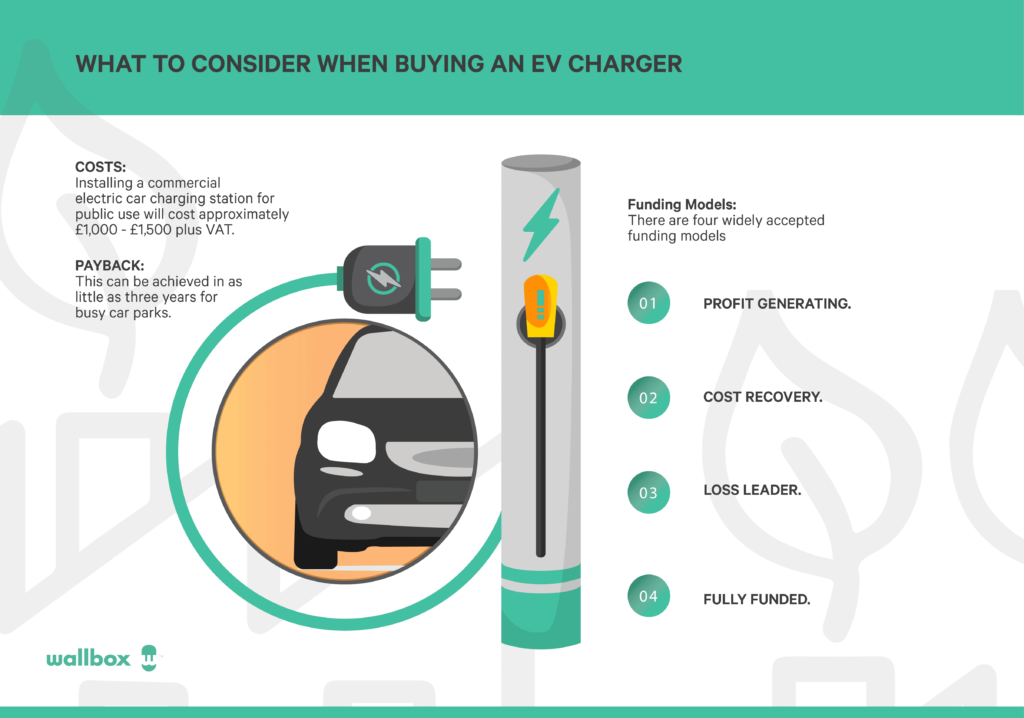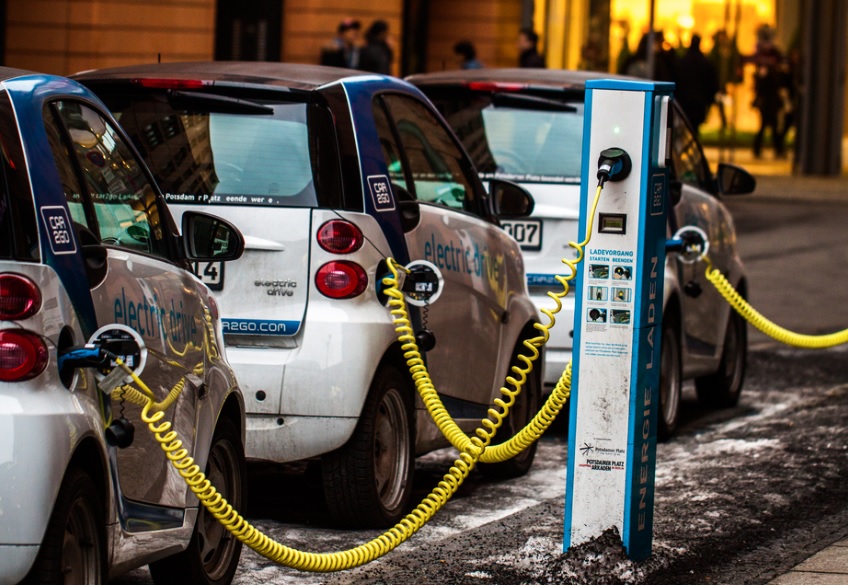As electric cars become more popular, there is a growing need for infrastructure to support them. One important question is how to charge up electric cars at gas stations. There are a few different options for charging electric cars at gas stations. One is to use a dedicated electric car charger, which can be found at some gas stations. Another option is to use a standard 110-volt outlet, although this will take much longer to charge the car. The best option for most people is to use a level 2 charger, which is a faster charger that can be found at some public charging stations. To use a level 2 charger, you will need to have the proper adapter for your car. Charging electric cars at gas stations is becoming more common as the number of electric cars on the road continues to grow. With a little research, you should be able to find a charging option that works for you.
The four major charging points in the United Kingdom are listed below. Electric cars require more fuel to charge than gasoline/diesel cars. If you’re thinking about where do you park the most frequently, think where you think you should park the most often. Look for charging stations that are installed in these locations. Check the Pod Point map to see if there are charging stations near you. As part of their charge-to-go effort, charging networks are working hard to make the process as simple as possible. However, there is some planning that can be done, particularly if you rely on the chargepoint.
The high power rapid chargers (43-350kW) can be found at motorway service stations and other locations in the United Kingdom. If your battery runs low from local driving, you may need to charge it in an emergency. The use of rapid chargers is a good idea because they can be found in supermarkets and other public places.
A fast charger is generally capable of filling the majority of batteries to 80% in less than an hour, and sometimes to half an hour. Because the battery is more difficult to charge and charges more slowly, the majority of drivers only use them when they are on long trips.
How Much Does It Cost To Recharge An Electric Car Battery At A Charging Station?

These types of charging stations are frequently found in shopping centers. Direct current fast chargers (DCFC), such as Level 3, are the fastest. The batteries can be charged to nearly full capacity in as little as an hour, and they cost between $10 and $30 per charge.
The cost of charging an electric vehicle is typically less than the cost of refilling a gas tank. Charging devices with slower speeds, such as those found at home, tend to be less expensive than those with fast charging capabilities. According to the US Energy Information Administration, residential electricity costs an average of 13.73 cents per kWh in 2021. If you use an electric car, you will typically pay less for fuel than if you use a gasoline-powered vehicle. Fast chargers can add a significant amount of range in as little as 30 minutes. Depending on how high gas prices are, you can expect to pay up to – or more than – the cost of fuel for a reasonably efficient combustion vehicle.
There are a few options for charging your electric vehicle. It can be plugged into a wall outlet or a plug-in electric vehicle-specific outlet, or it can be plugged into a commercial charger. An electric car can be charged at a commercial charger for between $10 and $30. You should be aware that charging your EV at a commercial charger – such as one on a road trip – costs significantly more than at home. Electric car charging sessions typically cost between 25 cents and 99 cents, depending on the vehicle’s power level, and are subject to a $1 session fee. The fee will be waived for the first hour after you place the order.
The High Price Of Electric Car Charging
In addition to charging electric cars at Walmart, they are becoming more popular all the time. chargers ranging from 25 cents to 99 cents, with a $1 session fee. To charge an electric car for 300 miles, the battery must be 75-100 kWh and the charge price is $10- $14. It’s also possible that you’ll have to pay a few extra charges up front. Charging your Tesla at a Supercharger costs approximately 26 cents per kWh, making it one of the most affordable ways to charge an electric vehicle. The cost of charging an electronic device using this method is typically higher than charging it with a 120-volt or 240-volt outlet.
How Do I Charge My Car At A Public Charging Station?

To charge your car at a public charging station, you will need to connect your car to the station using a charging cable. Once the connection is made, the station will start charging your car. The amount of time it takes to charge your car will depend on the type of charging station and the type of car you have.
Most electric vehicle owners charge their vehicles at home the majority of the time. Charging speeds vary greatly at public stations, different EV models use different connectors, and the fees and payment methods vary by station. Level 1 allows you to charge your device at a speed of up to Level 2, Level 2 allows you to charge your device at a speed of up to Level 3, and DC fast charging (DCFC) allows you to charge your device at a speed of up to Level 4. In the United States, the majority of charging stations are Level 2. With the help of these chargers, you can extend your range by up to 25 miles. The J1172 connector is required in vehicles capable of DC fast charging. The introduction of the Nissan Ariya electric SUV will be a symbolic departure from CHAdeMO.
It is the smallest and most functional of all charging connectors, in addition to being the most widely used. Furthermore, all Tesla vehicles come with an adaptor called the J1772, which allows them to charge at non-Tesla Level 2 public charging stations. When your battery is charged to 80%, it will last longer, so it will save you time on the road. Charging stations are available in a variety of locations throughout the country. Access cards and mobile apps are typically required for fast-charging stations in Washington, D.C. Electric vehicles are typically eligible for a federal tax credit of up to $7,500. Check out the new car rankings to see if the vehicle you’re interested in is worth pursuing.
The Rise Of Electric Cars
There are more and more electric vehicles on the road, and there are also more charging stations available. Charging your electric car can be difficult for a lot of people, even if you are an avid EV owner. Fortunately, charging stations are becoming more and more common, and you can charge your car at nearly any location that has a compatible plug or socket to your charging cable.
Is Charging An Electric Car Cheaper Than Paying For Gas?
Charging an EV at home is significantly less expensive than purchasing gasoline, and it is significantly less expensive than purchasing gasoline at a public charging station.
Electric vehicle charging at home is far less expensive than purchasing gas. When you stop for a quick charge, it is usually gasoline that wins. As part of a WSJ project, the paper calculated the cost of filling up electric vehicles in 15 U.S. cities. In the first five years of ownership, the Mach E cost slightly more than the RAV4. An EV owner will save money over time due to lower fuel and maintenance costs. A 300-mile road trip in Los Angeles, where gasoline prices are among the highest in the country, requires slightly less recharging for the EV.
Electric vehicles are becoming more affordable and practical by the year, making them more viable for drivers and businesses alike. One excellent example is the Nissan Leaf, which is less expensive to run and has lower lifetime costs than traditional gasoline vehicles. The Nissan Leaf is an eco-friendly vehicle that drivers can rely on to reduce their carbon footprint. Furthermore, electric cars have a shorter lifespan than gas vehicles, allowing drivers to save money in the long run by using one over another.
Is It Cheaper To Charge An Electric Car?
An electric vehicle is generally less expensive to run than an internal combustion engine-powered vehicle. The cost of an electric vehicle, on the other hand, can vary greatly depending on how it is used, where it is used, and when it is charged.
Electric Cars: The Pros
Regular care and maintenance are required for gas vehicles, whereas electric vehicles do not. As a result, you will save money on gas and enjoy the benefits of driving your car more. The vast majority of electric cars get significantly better gas mileage than gasoline cars. Electric vehicles are estimated to achieve 50 miles per gallon in city driving and 100 miles per gallon on the highway in EPA New Car Assessment Program (NCAP) tests. According to the American Society of Civil Engineers, the average gasoline car in city driving consumes about 25 miles per gallon, while the highway average consumes about 40 miles per gallon. Electric cars are an excellent choice if you want a car that will save you money on gas but don’t mind spending a little more on maintenance.
How To Charging Up Electric Cars At Gas Stations Near New York, Ny
If you live in or near New York, NY and own an electric car, you may be wondering how to charge up your car at gas stations. While many gas stations now have charging stations for electric cars, not all of them do. However, there are a few ways to find out if a gas station near you has a charging station. One way to find out if a gas station near you has a charging station is to check its website. Many gas station websites now have a section that lists whether or not they have charging stations for electric cars. Another way to find out if a gas station near you has a charging station is to call the station and ask. If you find a gas station near you that has a charging station, you will need to use a credit or debit card to pay for the charge. The cost of charging an electric car at a gas station varies, but it is typically around $0.50 per kilowatt-hour.